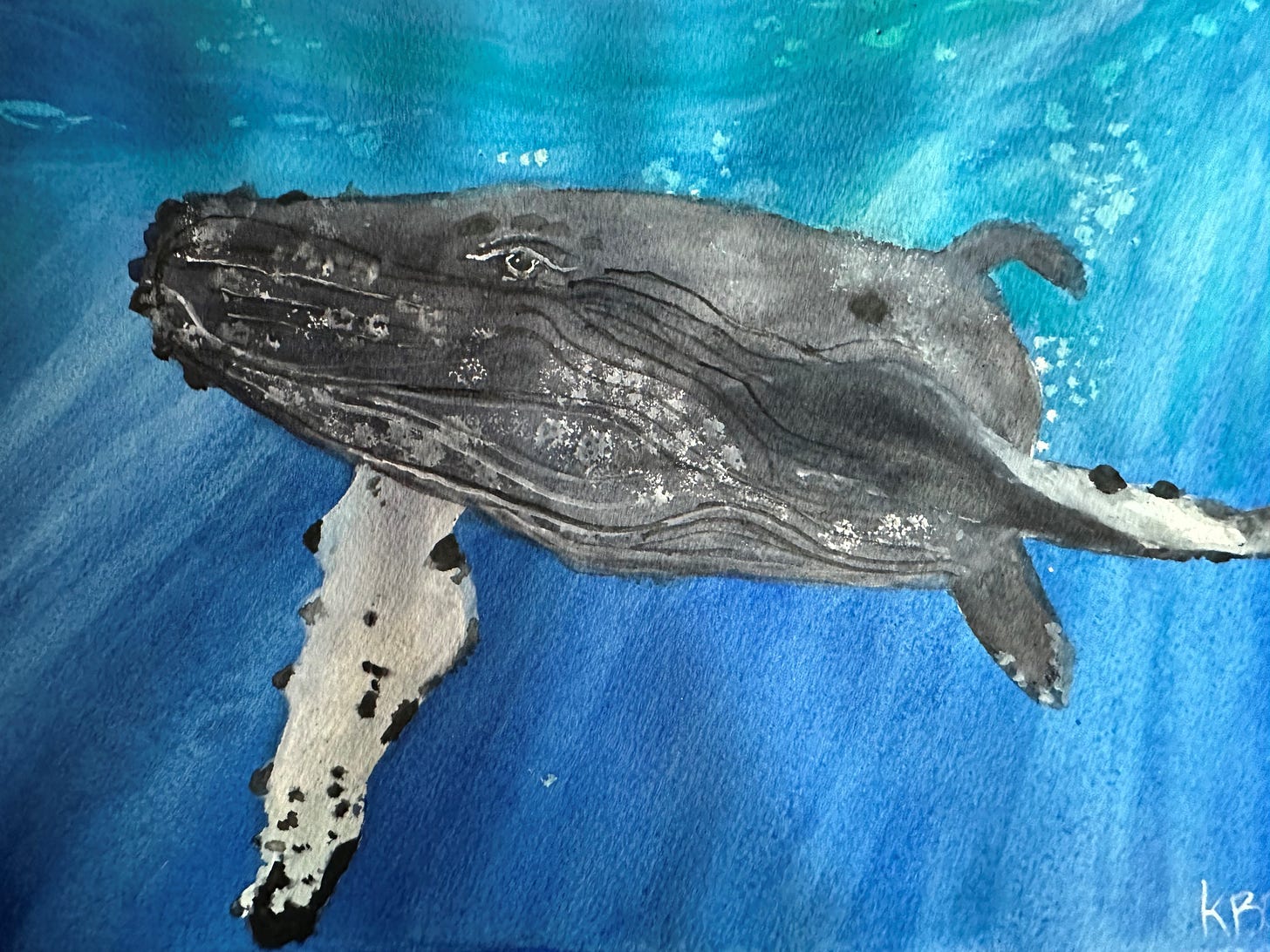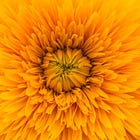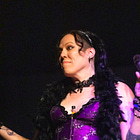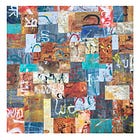Meet Neurodivergent Playwright Kari Bentley-Quinn through this art and mental health interview
"Protecting your mental health and working towards healing your traumas and wounds is the best way to foster your creativity."
ADHD is often undiagnosed in women/girls for a variety of reasons, and the solutions for people with ADHD have been built upon research into boys/men, so Kari’s voice is a very important one. In this interview, she tells us about her career as a playwright, the impact of ADHD on her creativity, the creative benefits of neurodiversity, and so much more.
Hi Kari! Thanks so much for being here today.
Let’s start with a little overview of your mental health experience. What are you open to sharing with us today?
I was diagnosed with Major Depressive Disorder and Generalized Anxiety Disorder when I was 16 years old. I also have been diagnosed with C-PTSD from childhood trauma. I had no idea I had ADHD, as I presented primarily with depression, anxiety and other symptoms typical of a trauma survivor. I wasn’t diagnosed with ADHD until I was 41 years old, although I have had it my whole life. I won’t say that I don’t have depression and anxiety - the jury is still out - but being on medication for ADHD has alleviated 90% of my symptoms for those other conditions. My relationship to mental health is changing because I am neurodivergent - and that’s not the situation I thought I was in. I am learning a lot, and I started my Substack to foster community among women diagnosed with ADHD later in life, and to help combat the immense stigma and misunderstanding of this disorder.
Thank you so much for sharing that background. Historically, so much of medicine/health care has been built around research done studying men and boys so there are many cases in which we don’t have information about the unique experiences of girls. ADHD is definitely one of those key areas, so the work that you’re doing is really important.
Let’s talk a bit about your creative history … what’s been your journey as a writer/artist?
I have been a writer since I was very young, but didn’t get the theater bug until I was 11 or 12. I’ve been a playwright since I was 15 years old, but took a detour into acting until I was out of college. I am still primarily a theater artist, but have been writing more prose recently. I keep coming across stories and the beginnings of novels that I started and ultimately abandoned, which is interesting. I never had the attention span to follow through.
I have a BA in Theater Arts from Pace University here in New York, and a decade after graduating, I got my MFA in Playwriting at Hunter College. I’ve been working as a professional playwright for more than 15 years.
Painting is what I do for fun, and it's how I find my sense of wonder and play. Watercolors are especially enjoyable. Learning about what water and pigments can do together has been great for my brain.
Creativity is my life, and has always been. I’ve never thought about what my life would be like without art in it. It’s always been a part of it.
That part about abandoned writing projects perhaps relates to ADHD so let’s start by exploring any thoughts you have on how your mental health experience impacted your creative process?
Now that I am medicated, I am taking another look at my approach and my process. I am still learning how my brain works, and what makes me excited or interested. ADHD is very much an interest- and novelty-based disorder, so it does often make it difficult when the project becomes tedious or is a lot of struggle. I have to find new ways to reinvigorate myself.
Before I was diagnosed, there were times that finishing a project felt impossible. The beautiful thing about making theater is that it's an inherently collaborative process. Yes, you write alone, but you can bring together actors and directors and hear pages out loud in a room. This is an exciting and fun part of playwriting, and can help you solve a problem in real time.
You mentioned a few different mediums that you work in. What are the particular challenges you’ve experienced as a professional playwright?
Playwriting as a career can be grueling. Not only do you have to write the plays, you need to see shows, join writer’s groups, apply for opportunities, and network. Even before the pandemic, I was feeling serious burnout. Not to mention that very few playwrights make their living from playwriting, so most of us have some other form of income. This means a lot of 14 hour days. It certainly doesn’t get easier as you get older. The constant rejection also takes its toll. I found it more and more difficult to manage my ADHD and do all the things I needed to do to get my work seen.

In terms of rejection, have your experiences in this field as a woman with mental health challenges ever caused discrimination?
I don’t know if I can point directly to being discriminated against for mental health, but I do know the word “difficult” has been used to describe me. Mostly by men. A former teacher of mine poisoned the well at a big organization for me by saying I was difficult to deal with, when in fact I simply disagreed with him when he tried to tell me how to write my play. So it goes. Being a woman in the field comes with built-in discrimination. I have always been open and honest about my mental health struggles. If that impacted my career, so be it. I never want anyone else who is struggling to feel alone.
Ugh, yes, “the difficult woman” trope. I’m so sorry that you (and of us) experienced it. And I appreciate that you are open and honest in this way. “I never want anyone else who is struggling to feel alone,” is a really powerful way to approach sharing your story.
Speaking of story-sharing, how has your mental health experience impacted the content of what you create?
Most of my protagonists are women. I love to tell women’s stories, especially women over 40, who I think are at their most interesting and vibrant. My playwriting mentor and friend - the late, great Tina Howe - said that “Women are still an undiscovered country”, and I think that’s true.
I also write stories about the cycle of abuse - both from my own experience, but also the cycle of abuse in America, and how we have not meaningfully coped with trauma. Our nation was founded on trauma, abuse and displacement, and we have still not found a tangible way to integrate this into the fabric of our society and try to do better. To grieve. To try to end it.
Such a powerful true statement.
A pause and a breath because this is important, heavy stuff …
What are some examples of how you have explored mental health in the women's stories in your plays?
My play The Worst Mother in the World deals the most directly with mental health, as the protagonist is a woman suffering from postpartum depression. Another play, The Unlikely Ascent of Sybil Stevens, is about a flight attendant who is the sole survivor of a plane crash, and the play explores how that trauma has impacted her life. My most recently completed play, The World I Have Known, focuses on a mother dealing with complicated grief from the loss of a child. Something that binds all these women together is their strength and resilience. Their mental illnesses are not the whole of who they are, but they are part of their journey.
“Their mental illnesses are not the whole of who they are, but they are part of their journey.” Love that because that’s true for all of us, I think!

Painting is newer for you. What new things have you learned about yourself as a creative through the new medium of watercolor?
I have been taking a lot of tutorials online, which is fun. I have learned that I can create without a real "goal" in mind. It's helped me be more open to experimentation. I actually have a good eye for colors, and I find colors very healing. I was never great at drawing or painting people, but I'm learning to focus on what I am good at rather than where I fall short. I love to paint landscapes, seascapes, and underwater creatures the most, so those are the subjects I focus on.
One of the things that comes up a lot for creatives with mental health challenges is that they impact our productivity. We kind of touched on that in regards to unfinished projects, but is there anything else you’d like to add on that?
There are times that I feel like I “should” be more successful than I am. I just have to remind myself that my undiagnosed ADHD, my family history, and the fact that I was a working class first generation college student with no financial support or connections stacked the odds against me. I’ve learned that I can’t measure my success in terms of money or accolades. I’m in my 40s now, and what I see is a career that I built from almost nothing, mostly on my own terms. For that I feel very proud.
There are definitely ways my ADHD and my anxiety/depression held me back. My most recent fallow period was lengthy, and I didn’t actually complete a full length play for over three years.
I can relate to that. My depression often caused burnout and fallow periods, sometimes a complete inability to work at all, let alone creatively. Sometimes, I wonder, though, if that’s also just a natural part of the ebb and flow of creativity and we beat ourselves up about it too much. Are we really supposed to be actively producing all of the time? In other words, I wonder how much of my downtime that I attribute to depression is really depression and how much is “normal” (whatever that means).
How do you see the relationship between your mental health and your identity?
I don't really connect the two, at this point, in terms of my identity. That is deliberate. The mythology around the “tortured artist” is one of my least favorite cliches. Suffering does not necessarily mean you will create your best work. In fact, in my case, bad periods of mental health are toxic to my creativity. Poor mental health can break your spirit. I don’t know a less cheesy way to say it.
I’ve learned to prioritize my mental health to protect my artist. I do think being neurodivergent has given me a unique perspective. My mind works differently than that of a neurotypical person. I draw connections and make associations that “normal” people may not have thought of. I consider this a strength.
Yes to all of this. One of the main reasons I’m so committed to researching the complex relationship between art and mental health is because I see almost all of the research and writing in this category organized either into art as therapy (as though it’s all good and never complicated) or that tortured artist/ mad genius cliche, neither of which is helpful for us.
And although I think it’s important that we don’t look at art only as therapy, it is of course also very therapeutic for us. How has it been healing for you?
It is not hyperbole that art has saved my life, time and time again. I had a difficult childhood - especially my adolescence - and if not for theater I might not be here today. It has given me hope and community. It gave me a healthy outlet and kept me out of trouble.
When I was struggling during the pandemic - writing felt impossible, for a while - I turned to painting. I painted and drew a lot as a child, but I was a rabid perfectionist and never felt I was “good” enough, so I abandoned it. Going back to that impulse has been healthy for me, and gave me a different way to express myself when my words failed me.
Perfectionism is a common challenge for people living with ADHD, and it’s one of the most common reasons that I’ve seen people procrastinate, avoid or stop creating all together. I’m glad to hear you’re finding your way back to that outlet. I think it’s helpful to have different ways of expressing ourselves because sometimes words aren’t the right medium.
I find it hardest to create when I am avoiding something. There are times you aren’t quite ready to face something, or own up to your mistakes, or acknowledge some deep unexplored grief. These are times when it's good to switch gears until you’re ready to sit with what you need to explore.
How have you seen art help others?
This could be its own essay! I think art not only can help you understand your own struggles better, but can provide an avenue for empathy. Empathy is something we are struggling with in this society, and the stories of people who are different from us are crucial to fostering compassion and trying to make the world a better place.
Theater is a bit like the Island of Misfit Toys. I am not the only one who felt saved by being a part of the theater community. There is something about creating live performance that is special, and fosters community and camaraderie. Like any other industry in entertainment, there is toxicity, but there is also a lot of healing.
Let’s dig into that part about toxicity but also healing …
I think creating art in and of itself has never hindered my mental health. I think building a career has. I am constantly struggling with separating my creative self from my business self, and sometimes the career has to take a backseat so my inner artist has the space to grow and change.
That makes a lot of sense. It’s a really tricky thing to navigate. One of the areas I’m really trying to better understanding is what happens in the space where mind, art, and business intersect.
Sometimes - especially if it is your career - making art can feel like just another task. I have a lot of difficulty getting started sometimes, but once I do, I can hyperfocus on it - sometimes at the expense of everything else on my to-do list.
In your own words, what do you think is the relationship between art and mental health?
I think protecting your mental health and working towards healing your traumas and wounds is the best way to foster your creativity. When that isn’t possible, look to art and experiences to find hope, community, and inspiration. Art has the power to heal.
What are some good resources for my continued explorations into this topic?
I am a huge fan of Tori Amos. She’s a prolific and powerful musician, and was one of the first people to directly address the trauma from sexual assault in her music. She has spoken about trauma recovery not only in her music, but in interviews and her own writing. She has always been a wealth of inspiration for me. Her recent book - Resistance: A Songwriters Story of Hope, Change and Courage - is a fascinating insight into her process.
Connect with
on Instagram, her website and here on Substack .Some of my favorite posts from Kari
If you read this far, perhaps you liked the work. The work does take work. It only continues with support, so please consider subscribing. My annual rate starts at $10 per year.










Loved this one! 😊
Thank you Kathryn for creating this (the whole thing) and sharing another important story and of course thank you Kari for sharing your story and truth. 🙏🏼